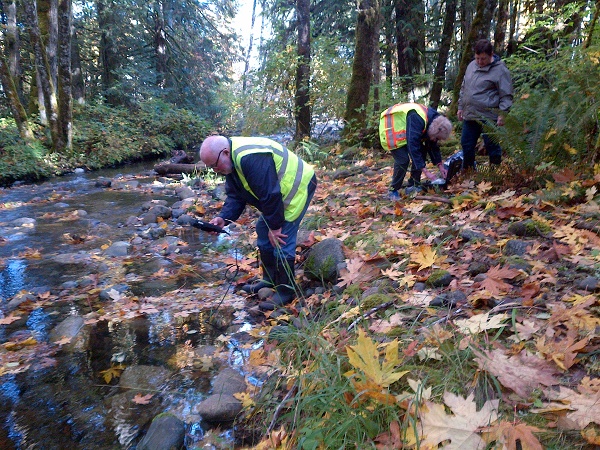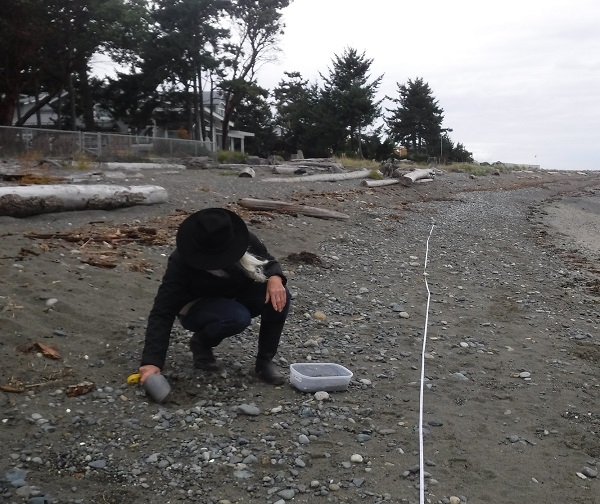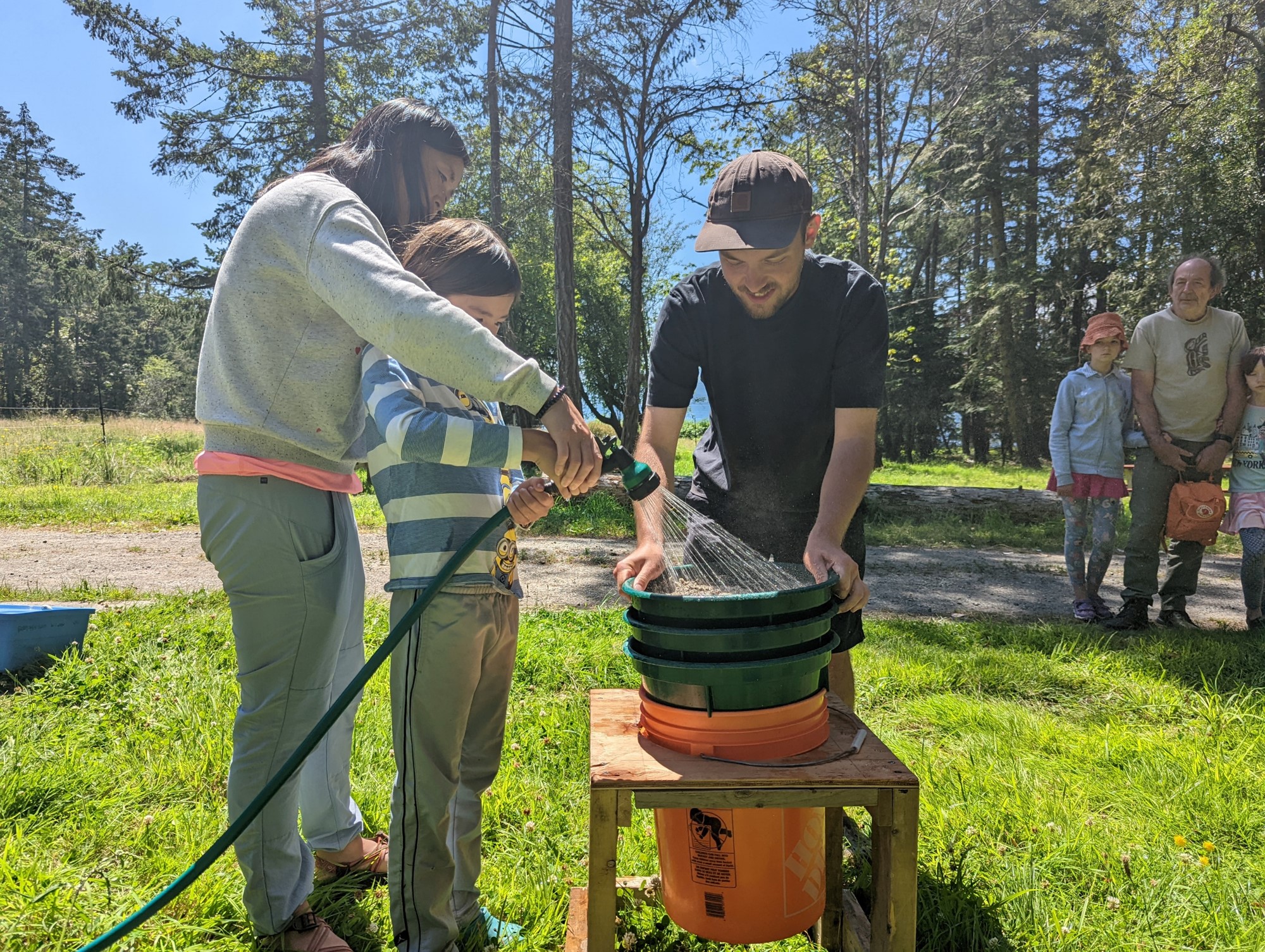Volunteer Opportunities
Volunteer Stewards
If you enjoy the outdoors, and want to spend time in your watershed while making a difference to its health, contact us! We are looking for dedicated stewards to help conduct fish surveys, assess and restore fish habitat, monitor water flow and quality, remove invasive species, and plant shrubs and tree seedlings beside creeks.
Check out the ongoing activities below to see where MVIHES members can volunteer.
Subscribe to our newsletter to see updates on projects and to see how you can volunteer for short term projects, ranging from a few hours to a few days.
Volunteer opportunities will also be posted on the MVIHES Google Calendar – add it to your calendar so you don’t miss anything.
community watershed monitoring network
 Every Tuesday for 5 weeks in August and 5 weeks during the fall flush (October/November), we measure water quality using meters on behalf of the Regional District of Nanaimo Drinking Water and Watershed Protection program. We have two teams: one which monitors 9 sites on the Englishman River and its tributaries and takes between 4 and 5 hours to complete; one which monitors 5 sites on Nanoose Creek, Lantzville, and Craig Bay and takes about 2 hours.
Every Tuesday for 5 weeks in August and 5 weeks during the fall flush (October/November), we measure water quality using meters on behalf of the Regional District of Nanaimo Drinking Water and Watershed Protection program. We have two teams: one which monitors 9 sites on the Englishman River and its tributaries and takes between 4 and 5 hours to complete; one which monitors 5 sites on Nanoose Creek, Lantzville, and Craig Bay and takes about 2 hours.
Forage Fish SpAwning Habitat Monitoring

Once a month we monitor 11 sites on our local beaches for the presence of Pacific Sand Lance and Surf Smelt eggs in partnership with the Mount Arrowsmith Biosphere Region Research Institute. We have two teams: one team monitors 6 sites while the other team monitors 5 sites. There are two steps to the process. The first step involves collecting sand samples from specific sites on the beaches which takes about 2 hours.

The second step is sieving the samples to isolate the fine sand grains where the tiny eggs are found. This step also takes about 2 hours.
If this something you are interested in, contact Barb at This email address is being protected from spambots. You need JavaScript enabled to view it.
You need to be a member ($10) and covered under our Streamkeepers Insurance to volunteer. You can join here.
Healthy ecosystems for future generations – your mark on your community.
Contact us at This email address is being protected from spambots. You need JavaScript enabled to view it.